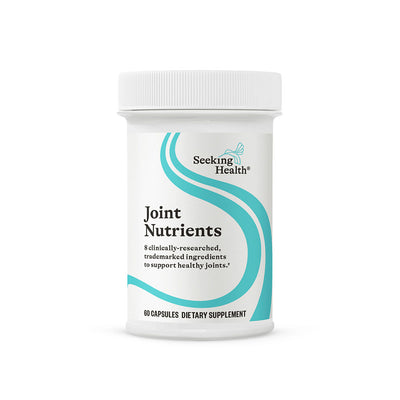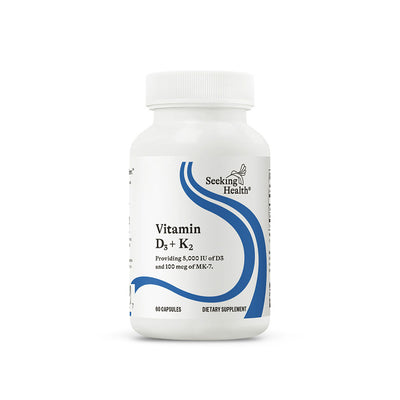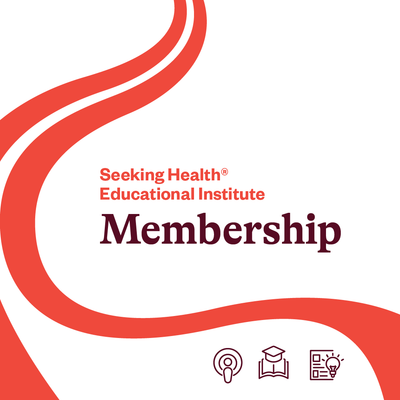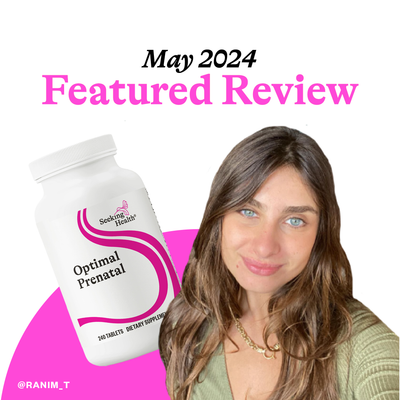Imagine your body as a garden that you want to flourish with new life. For a garden to thrive, it needs the right combination of sunlight, water, and nutrient-rich soil. Similarly, when trying to conceive, your body needs a mix of healthy foods rich in vitamins and minerals to create the perfect environment for a baby to grow. Eating the right foods is like preparing the soil, ensuring it's ready and fertile for new life to take root. This is why making smart food choices is crucial in starting a family.
We're here to guide you through a menu of healthy, fertility-supporting foods packed with nutrients supporting your and your partner's reproductive systems. You've got lots of ground to cover from avocados with their healthy fats to antioxidant-rich berries and even the valuable roles of dairy and hydration.
Remember, it's not about eating more. It's about eating smart!
How Should I Eat When Trying To Conceive?
It's all about creating the best possible environment for conception—what you eat is a big part.(1) Just like you'd get the soil ready before planting seeds, eating the right foods can prepare your body for pregnancy. Start by ensuring your meals are balanced, with many fruits, vegetables, whole grains, and proteins.
Foods rich in vitamins and minerals support your reproductive system. Fats are not foes; in fact, they're essential when you're trying to conceive. But we're talking about the good fats here, like omega-3 fatty acids. They support normal hormone function for both you and your partner, and for women, they also support egg quality. Just remember, balance is key. You don't want to go overboard with any one food group.

Remember to stay hydrated! Like a garden needs water to grow, drinking enough is essential for overall health and supports your reproductive system. Think of it this way—water helps carry the nutrients you're eating to where they need to go, including your reproductive organs. Aim for about eight glasses of water daily, more if you're active or it's hot outside.

Which Fruits Are Best For Healthy Fertility?
When it comes to supporting fertility, not all fruits are created equal. Among the many options, several standout fruits support healthy fertility and conception:
Avocados: These little green gems shine as a top choice to support your reproductive health—yes, they are a fruit! They are packed with healthy monounsaturated fats, vitamins, and minerals. These compounds support healthy hormone function. Plus, they're rich in folate, supporting egg and sperm health and your baby's health once you conceive. Eating avocados can be a tasty and nutritious way to support healthy fertility.(2) Whether you slice them on toast, blend them into smoothies, or enjoy them as a snack, avocados are a fertility-supporting food worth adding to your diet.
Berries: Berries like blueberries, strawberries, and raspberries are little powerhouses loaded with antioxidant nutrients like vitamins A, C, and E. These vitamins support cell health and healthy reproduction. Plus, they're delicious, and you can add them to your breakfast or enjoy them as a nutritious snack.
Citrus Fruits: These fruits are bursting with Vitamin C! Vitamin C supports your immune system and healthy sperm counts for men.(3) It also supports healthy ovulation and reproductive system function for women. Adding these fruits into your daily diet can be a simple yet effective way to support your fertility journey. Whether eaten alone or tossed into a salad, they offer a zesty way to support conception.
What Foods Should I Avoid When Trying to Conceive?
You’ll want to steer clear of some foods when you're on the path to parenthood:

- Raw and undercooked foods. You might love sushi, rare steaks, or your eggs sunny side up, but these can harbor bacteria that might affect your general health and fertility. They may also be bad for the health of your baby during pregnancy.(4)
- Unpasteurized cheeses and cold deli meats. These cheeses include feta, blue cheese, and brie. Cold deli meats you should avoid include hot dogs and bologna.(5) These products may contain listeria, which is especially harmful if you become pregnant and don’t realize it right away.(6)
- High-mercury fish. Sharks, swordfish, and some types of tuna are high in mercury. Mercury is a no-go because it doesn't support female or male fertility.(7,8) Think of switching to safer waters by choosing fish low in mercury, such as salmon, sardines, and trout.
- Caffeine. While it's unclear if caffeine intake negatively impacts conception, it's best to moderate how much you drink if you're trying to conceive.(9) It's not about giving up your morning cup of coffee cold turkey, but switching to a half-caff or decaf version could help make your body an even better place for a baby to start growing. Consider herbal teas instead—they come in so many delicious varieties!
- Sugar, sugary beverages, and processed foods are never healthy! While these foods are undoubtedly tasty, they don't support healthy blood sugar or blood pressure levels, let alone a healthy weight. They not only disrupt your nutritional balance, but they don't support fertility. When you have a baby, think of the great example you'll be setting for their health and well-being!
- Alcohol. Drinking alcohol can impair healthy conception. It's not safe for your health when you're trying to conceive, or your baby's once you fall pregnant. Men who drink too much alcohol aren't supporting their sexual and erectile functions, either.(10) No amount is safe!
- Low-fat dairy. Even though it sounds like the healthier option, consuming low-fat dairy products doesn’t support pregnancy. Simply put, when fat is removed from dairy, it changes the balance of hormones in the product. This altered balance might not be very supportive when trying to conceive.(11)
- High-glycemic-index foods. High-glycemic-index foods include carbohydrates like white bread, white rice, and potatoes. They also include juice and sodas. They can cause spikes in blood sugar, which isn't supportive of your reproductive or heart health.(12)
- Trans fats. Trans fats are often found in processed and fried foods, margarine, and vegetable shortening. Not only are they bad for your heart, they don't support fertility. For men, trans fats don't support healthy sperm counts or testicular health.(13)
Which Vitamins Are Good When Trying To Conceive?†
One superstar nutrient that often comes to the forefront is folate. Folate is like a superfood for your body's baby-making capabilities. It supports healthy cell growth and the development of DNA. Folate also supports ovarian health and healthy ovarian reserves.(14) It becomes the MVP in reproductive health because once you're pregnant, folate supports your baby's healthy neurological growth in preparation for a healthy pregnancy and delivery.(15)†
Folate is not just for women. Men benefit, too, as it supports healthy sperm counts and sperm viability.(16) You can turn to colorful, leafy green vegetables and supplements to get your fill.†
Integrating folate into your diet naturally is critical. Foods like spinach, asparagus, and Brussels sprouts are loaded with this essential nutrient. But remember, balance is crucial. While folate is a front-runner when trying to conceive, it works best when coupled with a balanced diet rich in other vitamins and minerals. This holistic approach to nutrition ensures your body is in top form for conception, creating a welcoming environment for new life.
These other nutrients include:†
- Vitamin D: Often called the "sunshine vitamin," vitamin D is instrumental in providing women with hormonal support and supporting men's healthy sperm.
- Vitamin E: Known for its antioxidant properties, vitamin E supports healthy sperm and a healthy conception overall.
- Vitamin C: Vitamin C has antioxidant properties that support healthy male and female fertility. In women, it supports a healthy menstrual cycle and hormone balance. For men, vitamin C supports healthy sperm quality and production.
- Iron: Adequate levels of iron in the diet support ovulation. Iron deficiency has been associated with anovulation (lack of ovulation), making it crucial for women aiming for pregnancy.
- Zinc: This mineral supports hormone regulation, healthy fertility, and healthy sperm in men. For women, zinc supports healthy ovulation and healthy fertility.
Seeking Health’s Conception-Supporting Vitamins†
Sometimes, you need a little extra help getting the vitamins and nutrients you need. Seeking Health has developed supplements to help support you from the first day you decide to have a baby straight through to delivery. We also offer methyl-sensitive formulas if you experience side effects from taking traditional supplements.†
- Optimal Man supports men’s fertility health and healthy testosterone levels.†
- Iron Chewable is a delicious and gentle form of iron and is well-tolerated with added vitamin C to support iron absorption.†
- Multivitamin One is a one-a-day multivitamin featuring bioavailable nutrients, and Methyl B12 and methylfolate support optimal methylation. It also comes in a methyl-free form (Multivitamin One MF) and as a chewable vitamin (Optimal Multivitamin Chewable).†
- Methyl B12 with L-Methylfolate This supplement provides active, methylated folate and B12 in a well-absorbed lozenge.†
- Vitamin C Plus is a buffered vitamin C with bioflavonoids providing potent antioxidant support for immune health.†
- Zinc Lozenge is in a gentle chelated form and supports optimal zinc absorption. It supports healthy hormone production, blood sugar levels, and immune response.†
Seeking Health has also developed several pregnancy vitamins and supplements, including prenatal supplements, to support pregnancy health!†
The Bottom Line

What you eat is critical when creating new life, like selecting the best soil and nutrients for a garden you want to grow. Like plants that thrive with the proper care, your body becomes the perfect home for a baby when fueled by nutritious foods. Making smart diet choices, like including vitamins and minerals, is essential for healthy fertility. It's like laying down fertile ground for new life to bloom. Remember, the path to pregnancy is unique for everyone, but ensuring your body gets the right nutrients is a universal step in the right direction.†
References:
- https://pubmed.ncbi.nlm.nih.gov/34139003/
- https://pubmed.ncbi.nlm.nih.gov/27213449/
- https://pubmed.ncbi.nlm.nih.gov/15665024/
- https://www.ncbi.nlm.nih.gov/books/NBK582930/
- https://ask.usda.gov/s/article/What-steps-can-be-taken-during-pregnancy-to-prevent-listeriosis
- https://pubmed.ncbi.nlm.nih.gov/38506266/
- https://pubmed.ncbi.nlm.nih.gov/31136080/
- https://pubmed.ncbi.nlm.nih.gov/30831212/
- https://pubmed.ncbi.nlm.nih.gov/32546170/
- https://pubmed.ncbi.nlm.nih.gov/38370970/
- https://pubmed.ncbi.nlm.nih.gov/17329264/
- https://pubmed.ncbi.nlm.nih.gov/17882137/
- https://pubmed.ncbi.nlm.nih.gov/27834316/
- https://pubmed.ncbi.nlm.nih.gov/34809974/
- https://pubmed.ncbi.nlm.nih.gov/26272218/
- https://pubmed.ncbi.nlm.nih.gov/37539255/
† These statements have not been evaluated by the Food and Drug Administration (FDA). This product is not intended to diagnose, treat, cure, or prevent any disease.












